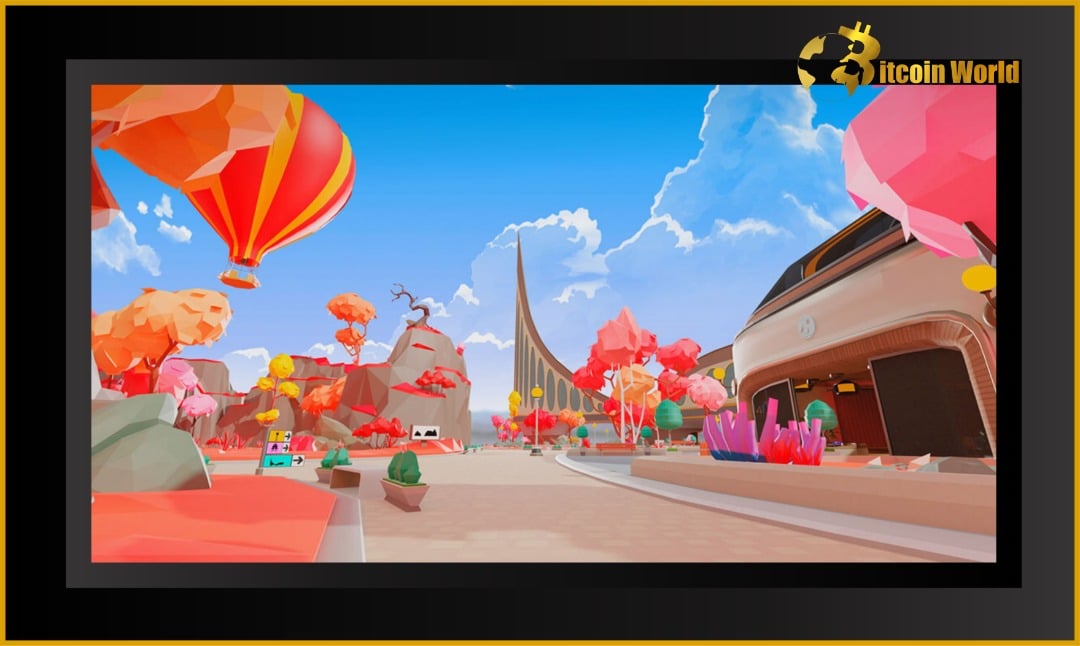The concept of virtual real estate has emerged as an intriguing frontier in the field of digital technology. This phenomenon has caught the interest of investors, entrepreneurs, and enthusiasts alike, fuelled by the revolutionary power of non-fungible tokens (NFTs). But what is virtual real estate, and what are the ramifications of this expanding digital landscape?
DELVING INTO THE REALM OF VIRTUAL REAL ESTATE
Virtual real estate, as the name suggests, encompasses the ownership of digital properties within virtual worlds, or metaverses, such as Decentraland and The Sandbox. These metaverses, akin to immersive online communities, provide a platform for users to interact, socialize, and engage in various activities.
The advent of NFTs, unique digital assets that reside on a blockchain, has revolutionized the concept of virtual real estate ownership. NFTs serve as digital deeds, providing irrefutable proof of ownership and enabling seamless transfers of virtual properties. This has opened a plethora of opportunities for individuals to purchase, develop, and monetize virtual land.
THE DRIVING FORCES BEHIND VIRTUAL REAL ESTATE’S POPULARITY
Several factors have contributed to the surge in popularity surrounding virtual real estate. One of the primary drivers is the burgeoning metaverse ecosystem, which is attracting a growing user base eager to immerse themselves in these virtual worlds. This influx of users has created a demand for virtual spaces, driving up the value of virtual properties.
Another key factor is the potential for monetization that virtual real estate offers. Landowners can host events, rent out their properties, or develop them into virtual businesses, generating income streams within the metaverse. This has attracted investors and entrepreneurs seeking new avenues for profit in the digital realm.
The scarcity of virtual land further adds to its appeal. Metaverses often have a finite supply of land, making each parcel of virtual real estate a unique and potential asset. This scarcity has fueled the demand for virtual properties, driving up their prices.
THE IMPLICATIONS OF VIRTUAL REAL ESTATE
The emergence of virtual real estate has profound implications for the future of digital interactions and commerce. It has the potential to transform the way we interact with each other, engage in business, and even own property.
One of the most significant implications is the potential for virtual real estate to serve as a new economic engine. As the metaverse ecosystem continues to evolve, virtual land could become a valuable commodity, generating substantial revenue for landowners and developers.
Moreover, virtual real estate could reshape the realm of e-commerce. Businesses could establish virtual storefronts within metaverses, allowing consumers to interact with products and services in an immersive and engaging manner. This could revolutionize the way we shop and conduct online transactions.
Furthermore, virtual real estate could transform the concept of ownership. By providing verifiable proof of ownership through NFTs, virtual real estate could establish a new standard for digital assets, extending the concept of ownership beyond physical property.
CHALLENGES AND CONSIDERATIONS FOR VIRTUAL REAL ESTATE
Despite its immense potential, virtual real estate faces certain challenges and considerations. One of the primary concerns is the regulatory landscape surrounding NFTs and virtual assets. As this is a relatively new domain, there is a lack of clear regulations, which could lead to uncertainty and potential legal disputes.
Another challenge is the interoperability of virtual assets. Currently, virtual properties are often confined to specific metaverses, limiting their transferability and potential value. The development of interoperable standards could address this issue, enabling seamless transfer of virtual assets across different metaverses.
Additionally, the long-term viability of the metaverse ecosystem is a critical consideration. Virtual real estate’s value is intrinsically linked to the success and popularity of metaverses. If these virtual worlds fail to attract and retain users, the value of virtual properties could plummet.
A GLIMPSE INTO THE FUTURE
The emergence of virtual real estate marks a significant step forward in the evolution of digital interactions and commerce. As the metaverse ecosystem continues to develop, virtual land has the potential to become a valuable commodity, driving economic growth and transforming the way we engage with each other in the digital realm. While challenges and considerations remain, the potential of virtual real estate is undeniable, and it is poised to play a transformative role in shaping the future of our digital experiences.
Disclaimer: The information provided is not trading advice, Bitcoinworld.co.in holds no liability for any investments made based on the information provided on this page. We strongly recommend independent research and/or consultation with a qualified professional before making any investment decisions.



